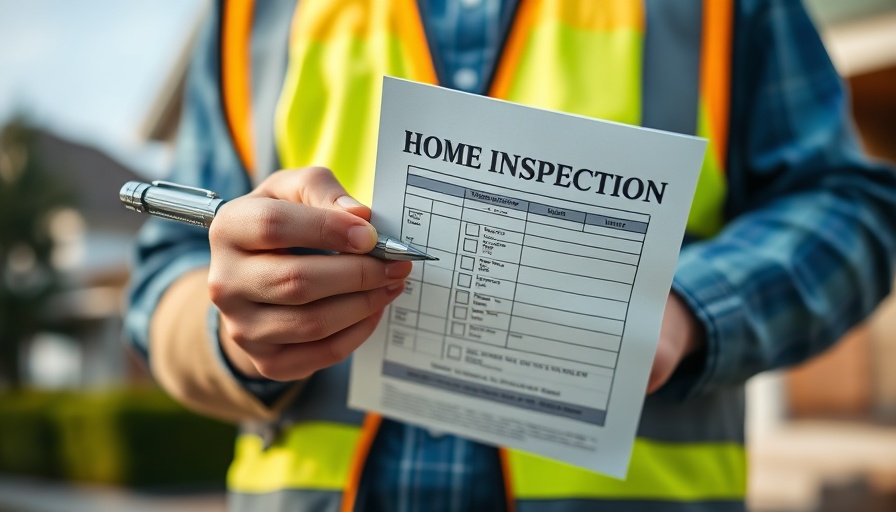
Your Essential Guide to Home Inspections: Avoid Costly Surprises
Buying a home can be one of the most exciting yet stressful experiences in life. To ensure you’re making a sound investment, a thorough home inspection is non-negotiable. It not only reveals crucial information about the condition of the home but also safeguards you from unexpected expenses down the road. While some buyers may consider waiving this step to expedite the process, it's wise to include an inspection contingency to better protect your interests.
What to Expect From a Home Inspection
Once your offer on a house is accepted, it's time to arrange a home inspection. A licensed home inspector will evaluate various components of the property to identify any potential issues regarding safety, maintenance, or necessary repairs. Here's a general home inspection checklist that outlines key areas you'll want to be aware of during the evaluation:
Exterior Examination: The First Line of Defense
The exterior of a home is the first indicator of its overall condition. Inspectors will look at:
- Roof Condition: Any missing shingles or damage can lead to leaks.
- Gutters and Downspouts: Proper drainage is crucial to prevent water damage.
- Siding and Trim: Rot and cracks can signal long-term issues.
- Yard Grading: Ensure that the landscape slopes away from the house to avoid flooding.
Interior Indicators: Finding Hidden Problems
The interior of the home will be closely scrutinized as well. Important aspects include:
- Floors and Walls: Check for level surfaces and signs of sagging or settling.
- Smoke and Carbon Monoxide Detectors: Safety features must be functional.
- Pipes and Heating: Look out for leaks and ensure heating systems are operational.
Electrical and Plumbing: Backbone of Your Home
The electrical system is a major feature that can’t be overlooked. A quality inspection will reveal:
- Main Electrical Panel: Cleanliness and labeling are essential to system safety.
- Potable Water Supply: Check water pressure and look for leaks in plumbing.
Why Each Inspection Matters: Preventative Maintenance
Conducting a comprehensive home inspection may seem time-consuming or expensive, but think of it as an investment in peace of mind. A thorough check can save you thousands later on by catching issues that may otherwise be overlooked. For instance, unnoticed plumbing leaks can lead to extensive water damage, or electrical issues can pose safety risks, contributing to potential fire hazards.
Real-Life Impacts: Home Buyer Stories
Many homebuyers have a story about how a home inspection saved them from a significant financial burden. For instance, one couple found extensive mold in a property they loved, leading them to walk away before they fell deeper down the rabbit hole of ownership. Such experiences highlight the value of a prepared checklist and a vigilant home inspector.
Next Steps: Be Proactive in Your Home Buying Journey
As you venture into the home buying process, remember to stay proactive. Always request an inspection and use this checklist as your guide for areas to focus on. It’s far better to know what you're walking into than to be caught off-guard after closing. Understanding the condition of your potential new home equips you to negotiate appropriately or walk away from a poor investment.
Don't let the excitement of buying a home lead to costly surprises. Equip yourself with the right tools and knowledge, and your journey to homeownership will be a successful one!
 Add Row
Add Row  Add
Add 




Write A Comment